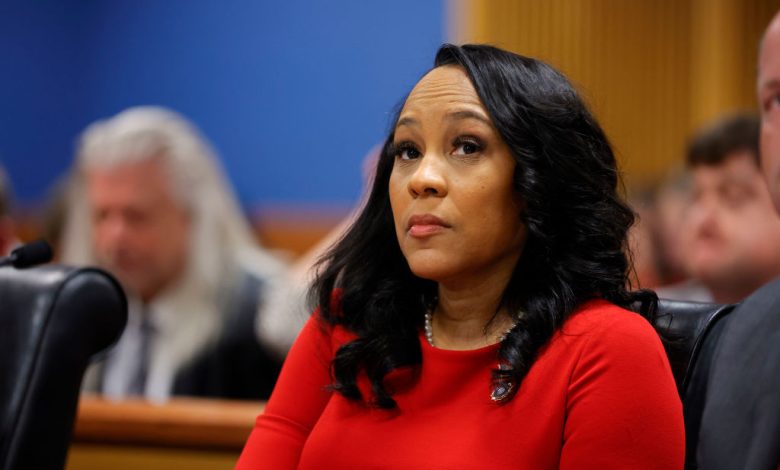Disqualifying Fani Willis May End Trump RICO Case: Legal Experts


Fulton County District Attorney Fani Willis looks on during a hearing in the case of the State of Georgia v. Donald John Trump at the Fulton County Courthouse on March 1, 2024, in Atlanta, Georgia. | Source: Pool / Getty
The Georgia Court of Appeals’ decision on Thursday to disqualify Fulton County District Attorney Fani Willis from prosecuting a sprawling racketeering case against Donald Trump could effectively end the last remaining criminal case the president-elect is facing, legal experts say.
The stunning reversal of a previous ruling stemming from what the appeals court determined to be a conflict of interest between Willis and the case’s lead prosecutor, both of whom engaged in a romantic relationship — the court referred to it as “an appearance of impropriety” — was not entirely unexpected.
That said, the indictment alleging racketeering, conspiracy and organized (RICO) crimes surrounding Trump’s alleged efforts to overturn the election results in Georgia still stands, for now.
The appeals court said taking such action to disqualify a prosecutor is “rare” but necessary in this instance.
“While we recognize that an appearance of impropriety generally is not enough to support disqualification, this is the rare case in which disqualification is mandated and no other remedy will suffice to restore public confidence in the integrity of these proceedings,” the court wrote in Thursday’s opinion.
The court added: “We cannot conclude that the record also supports the imposition of the extreme sanction of dismissal of the indictment.”

Fulton County District Attorney Fani Willis stands next to Nathan Wade at a press conference in the Fulton County Government Center after a grand jury voted to indict Donald Trump and 18 others on August 14, 2023, in Atlanta, Georgia. | Source: CHRISTIAN MONTERROSA / Getty
The appeals court began deciding Willis’ fate in May after Fulton County Superior Court Judge Scott McAfee previously ruled that a relatively brief romantic relationship between Willis and outside special prosecutor, Nathan Wade, didn’t amount to ethical misconduct or a conflict of interest.
The issue was first raised by an attorney for RICO defendant Michael Roman, who argued Wade, Willis and her entire office should be barred from prosecuting the case because Willis and Wade were involved in an inappropriate romantic relationship, that Willis paid Wade large sums of money for his work and that she benefitted when he paid for lavish vacations.
But Roman’s legal team wasn’t able to prove anything outside of the fact that Willis and Wade had a relationship. While McAfee acknowledged that the relationship did present the “appearance of impropriety,” he said he couldn’t simply remove them from the case “without sufficient evidence” of anything else Roman’s lawyer accused them of.
McAfee did rule that either Willis or Wade had to recuse themselves from the case, which Wade did shortly afterward.
The RICO case against Trump and his co-defendants is in legal limbo after Thursday’s decision.
Legal experts told NBC News months before this week’s decision to disqualify Willis that continuing the case would be a “massive undertaking” if the Fulton County DA was removed.
Because the case was not dismissed, a new prosecutor can be appointed. But given the appeals’ court ruling, that new prosecutor could even “decide not to pursue” the case any longer, according to Amy Lee Copeland, a defense lawyer and former federal prosecutor in Georgia.
State law dictates that the Prosecuting Attorneys’ Council of Georgia must choose a new prosecutor when one is disqualified from a case.
Pete Skandalaki, the council’s executive director, previously suggested that doing so has financial implications that may prove to be costly. In addition, while any prosecutor chosen cannot refuse the assignment, Skandalaki suggested that finding a prosecutor who is “willing to take on the assignment” could prove difficult.
That all adds up to increasing uncertainty about whether the case will actually move forward or if it will be the latest instance of Trump avoiding accountability in a series of criminal indictments.
This is America.
SEE ALSO:
Fani Willis Calls Out Racism Behind Prosecutorial Oversight Committee As Trump RICO Case Stalls





